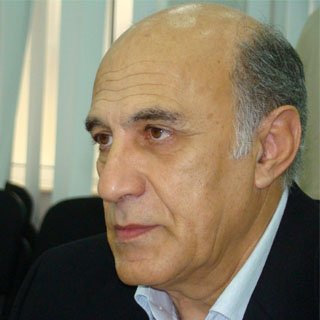Azerbaijan, Baku, Dec. 23 / Trend S.Agayeva/
Azerbaijan may consider France's replacement in the OSCE Minsk Group by another state in case French parliament finally adopts a bill criminalizing denial of the so called "Armenian genocide", said a member of Trend Expert Council, a political scientist Fikret Sadykhov.
If French president Sarkozy approves the bill, Azerbaijan will be able to raise the issue of France's replacement by another leading European state in the OSCE Minsk Group. The EU has the countries such as Germany and UK, I mean there is no lack in countries which would address the Armenian-Azerbaijani Nagorno-Karabakh conflict more impartially, Sadykhov told Trend Friday.
On Thursday, the French parliament adopted a bill criminalizing denial of the so-called "Armenian Genocide".
Some 45 out of 577 French MPs participated in the voting, 38 of which voted for, while 7 voted against the adoption of the bill.
The bill sets a punishment of up to one year in prison and a fine of 45,000 euro for those who deny the so-called "Armenian Genocide".
Sadykhov characterized this move of the French lawmakers as "absolutely ungrounded and unintelligible", particularly in the light of current political situation.
He said France should not have taken such a step.
Of course, it will exacerbate situation generally and will affect relations between France and Turkey. France will lose more than it gain. France may now be subjected to criticism. France did everything to worsen relations with Turkey. It will definitely affect relations between Azerbaijan and France, Sadykhov noted.
According to Sadykhov, France being a leading state of the EU and member of the UN Security Council pretending to mediate in the OSCE Minsk Group, loses its objective role, its impartiality when considering such issues and conflicts.
He said people in Azerbaijan have always understood that France is quite partial in the Armenian-Azerbaijani Nagorno-Karabakh conflict.
This was seen in French officials' many statements toward the conflict and though official Paris supports the territorial integrity of Azerbaijan, incumbent authorities of France nevertheless showed themselves as Armenia's ally and particularly it was seen when president Sarkozy visited Yerevan and called Armenia France's "sister". It was political nonsense to hear from the president of the country that should take impartial position toward the conflict, Sadykhov said.
Of course, Azerbaijan is not satisfied with the OSCE Minsk group, and France's actions aggravate situation, Sadykhov noted.
In due time such a situation arose in France in the presidency of Jacques Chirac who was wise and strong enough to refuse to approve similar bill, a political scientist reminded adding that in current situation role of the president himself in executive power of France is very important.
Azerbaijan's Foreign Ministry strongly condemned the adoption by the French National Assembly of a draft law introducing a ban on the denial of the so-called "Armenian genocide".
"Azerbaijan states that this step contradicts the basic principles of democracy in the European space - freedom of speech and opinion is at odds with the obligations of the rights and fundamental freedoms taken by France," the Azerbaijani Foreign Ministry said in an official statement issued on Thursday.
The conflict between the two South Caucasus countries began in 1988 when Armenia made territorial claims against Azerbaijan. Armenian armed forces have occupied 20 percent of Azerbaijan since 1992, including the Nagorno-Karabakh region and 7 surrounding districts.
Azerbaijan and Armenia signed a ceasefire agreement in 1994. The co-chairs of the OSCE Minsk Group - Russia, France, and the U.S. - are currently holding the peace negotiations.
Armenia has not yet implemented the U.N. Security Council's four resolutions on the liberation of the Nagorno-Karabakh and the surrounding regions.






